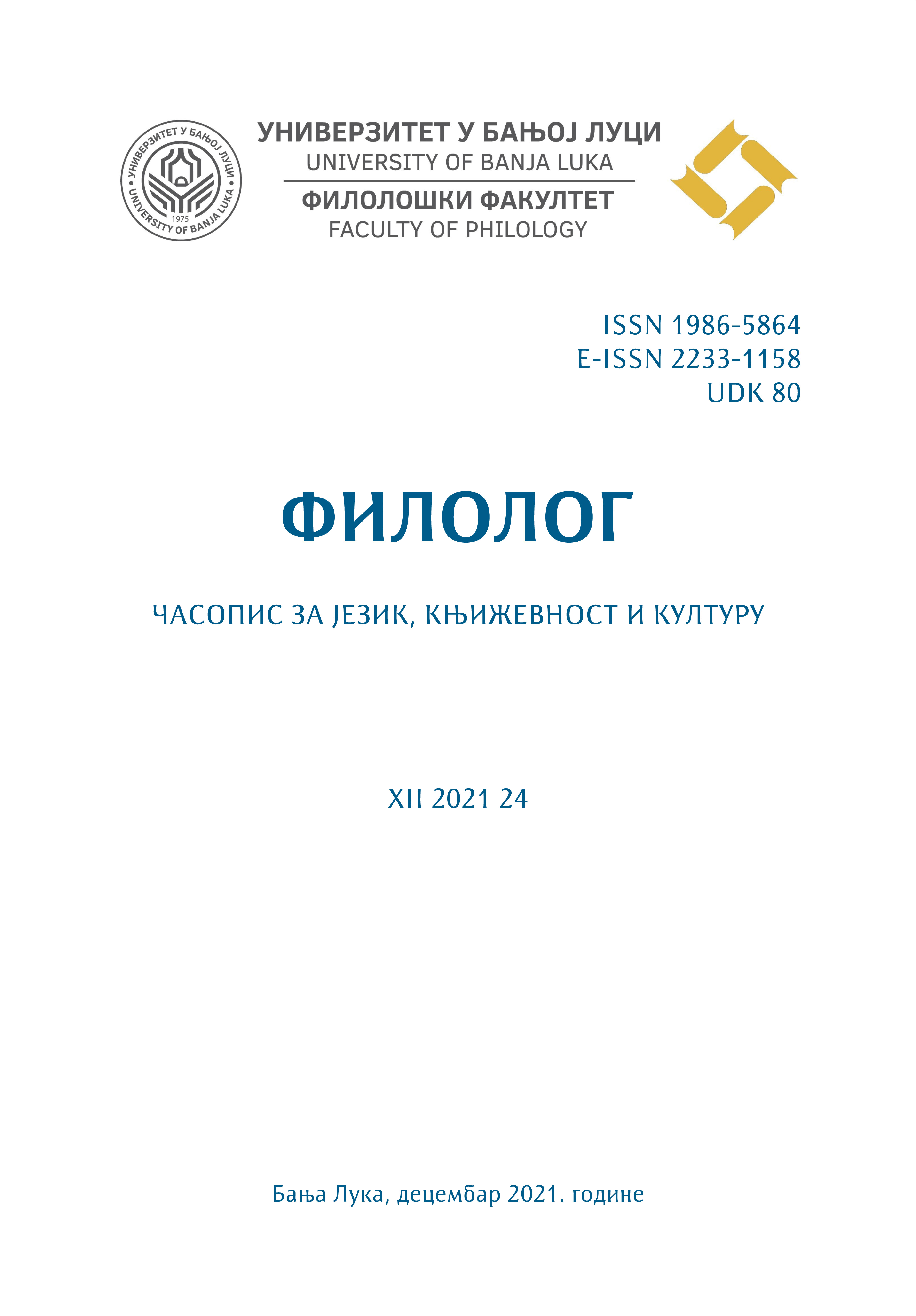(DE)MARGINALISATION IN JULIA ALVAREZ’S HOW THE GARCÍA GIRLS LOST THEIR ACCENTS: IMAGES OF GARCÍA GIRLSʼ ETHNIC AND GENDER OPPRESSION
(DE)MARGINALISATION IN JULIA ALVAREZ’S HOW THE GARCÍA GIRLS LOST THEIR ACCENTS: IMAGES OF GARCÍA GIRLSʼ ETHNIC AND GENDER OPPRESSION
Author(s): Mirna ĆurićSubject(s): Language and Literature Studies, American Literature
Published by: Филолошки факултет Универзитета у Бањој Луци
Keywords: marginalisation; biculturalism; gender; ethnicity; Latina; New Mestiza; Julia Alvarez;
Summary/Abstract: Ethnic marginalisation minorities is a recurring theme in ethnic writers’ works, such as Julia Alvarez’s novel How the García Girls Lost Their Accents, which highlights the marginalisation of Dominican family García in American culture. This paper, which draws on postcolonial and Latina feminist theory, focuses on the societal practices and familial dynamics that decenter the García sisters’ status both in their family and Dominican and American sociocultural environments. The close reading analysis conveys various forms of discrimination and oppression against the García sisters based on gender and ethnicity. Contrary to the novel’s title, which implies that the sisters eventually lose their accents or connection to Dominican culture, the paper argues that the sisters, in their effort to transcend the margins, manage to situate themselves between two cultural fames, developing specific bicultural consciousness, which aids them in overcoming feelings of marginalisation, cultural and social alienation.Ethnic marginalisation is a recurring theme in ethnic writers’ works, such as Julia Alvarez’s novel How the García Girls Lost Their Accents, which highlights the marginalisation of Dominican family García in American culture. This paper, which draws on postcolonial and Latina feminist theory, focuses on the societal practices and familial dynamics that decenter the García sisters’ status both in their family and Dominican and American sociocultural environments. The close reading analysis conveys various forms of discrimination and oppression against the García sisters based on gender and ethnicity. Contrary to the novel’s title, which implies that the sisters eventually lose their accents or connection to Dominican culture, the paper argues that the sisters, in their effort to transcend the margins, manage to situate themselves between two cultural frames, developing specific bicultural consciousness, which aids them in overcoming feelings of marginalisation, cultural and social alienation.
Journal: Филолог – часопис за језик, књижевност и културу
- Issue Year: 12/2021
- Issue No: 24
- Page Range: 371-388
- Page Count: 18
- Language: English

